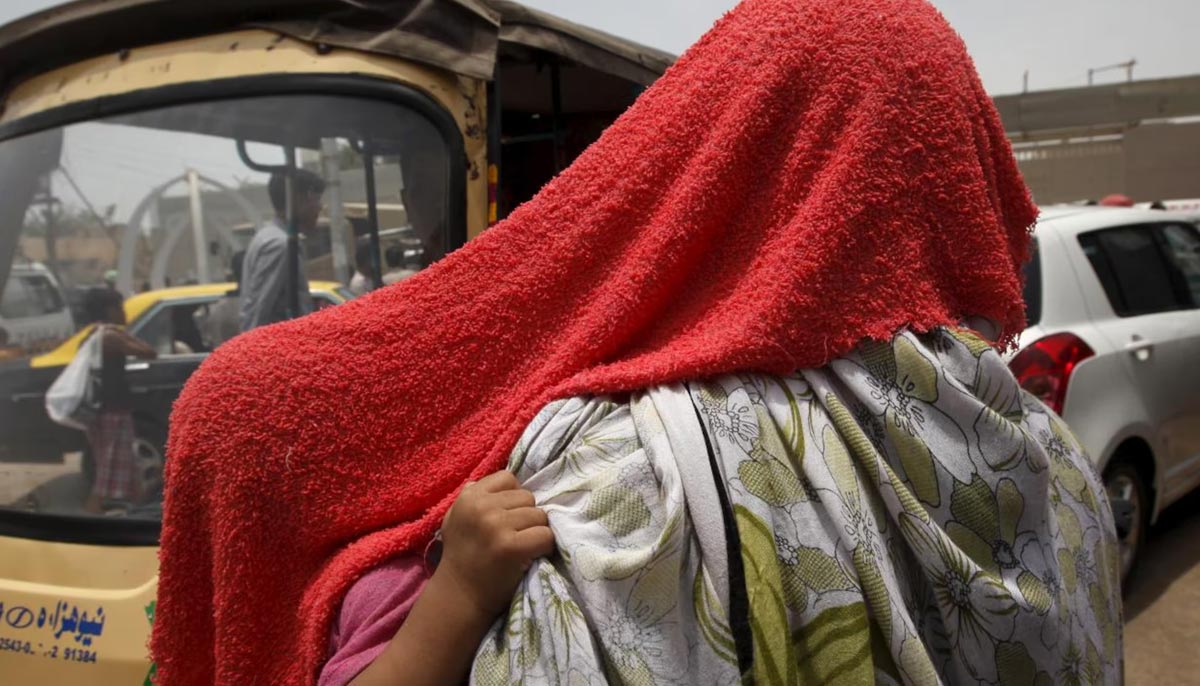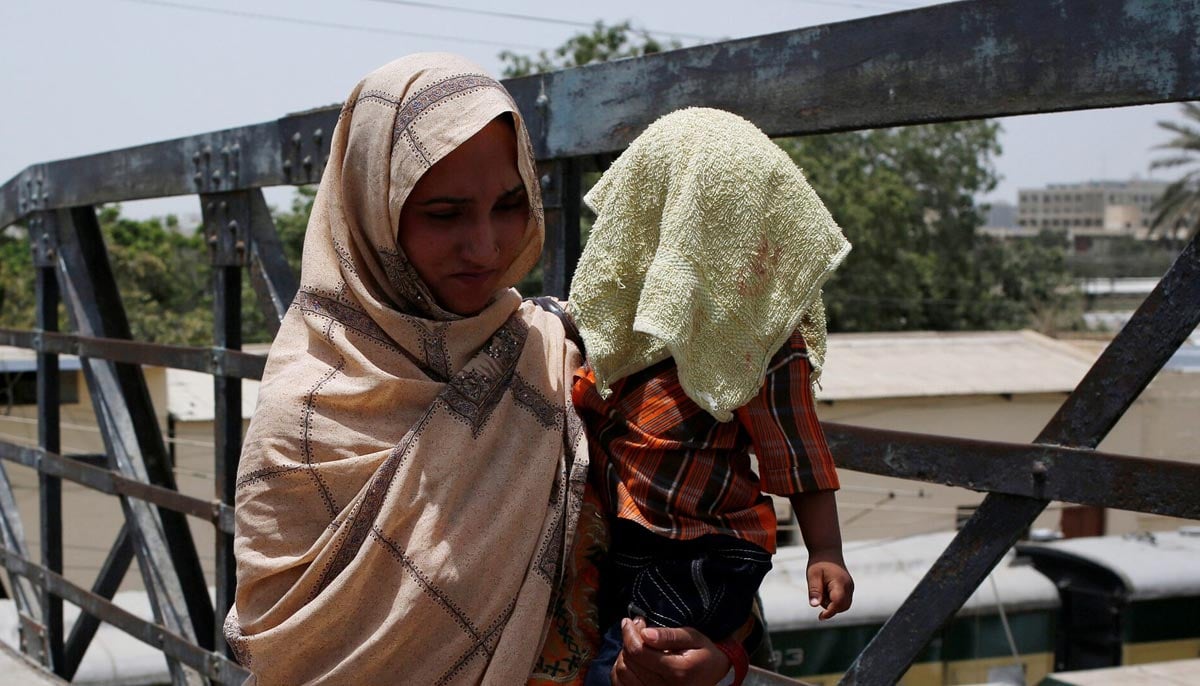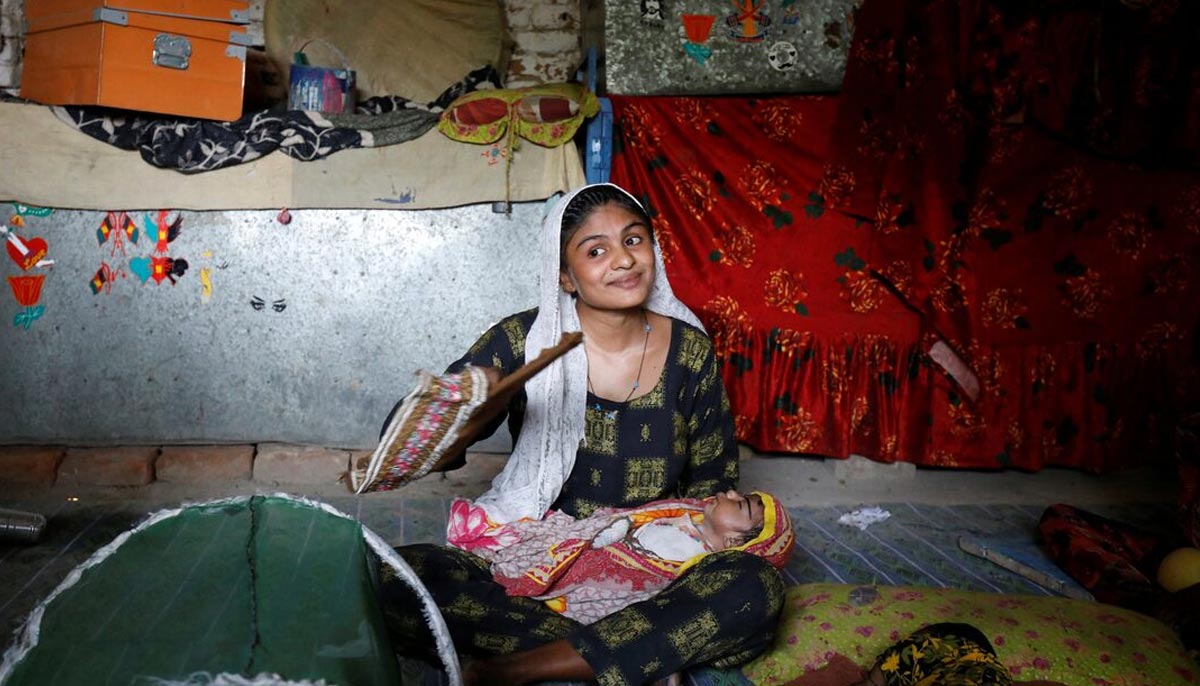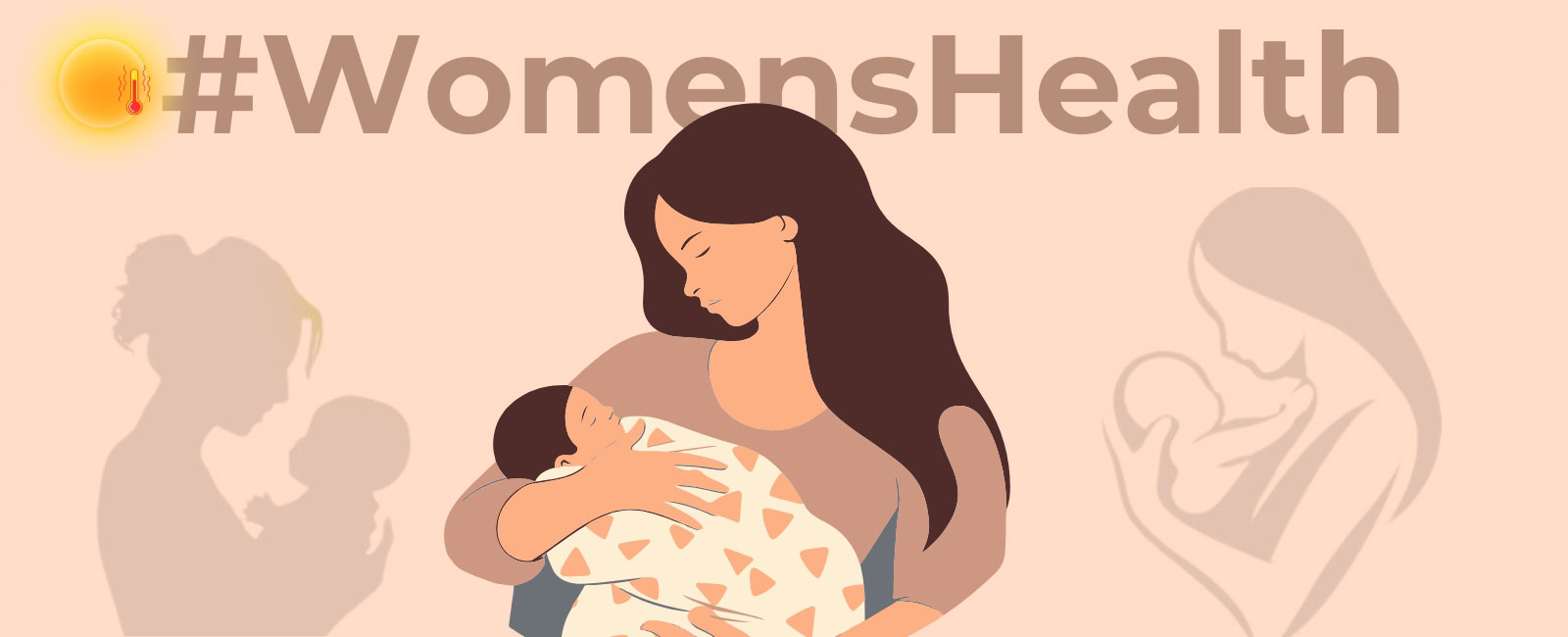Telltale toll: How escalating heatwaves are giving new mums postpartum depression
Postpartum depression is a type of depression that happens after a baby is born and it can last up to one year

While friends and family celebrated the joy of a new life, Erum — a new mother — quietly battled the overwhelming challenges of postpartum depression (PPD), compounded by Karachi’s killing summer heat.
"I started having high blood pressure, which the doctor said was worsening due to stress and felt heart-consuming sadness. I was diagnosed with postpartum preeclampsia and postpartum depression," Erum* told Geo.tv as Karachi sweltered in the summer heat this year.
"Even little chores seemed huge, and the anticipation to start doing anything just after a week was terrible. I was afraid heat and sweating could affect my scars and used to feel frustrated most of the time."
Karachi, one of Pakistan’s most densely populated cities, witnessed soaring temperatures with environmentalists and meteorologists increasingly concerned about the city’s climatic future. Raising serious questions about the future of Karachi’s climate, the feel-like temperature crossed 50 degrees Celsius, with the Pakistan Meteorological Department (PMD) hinting at a possible shift toward a year-round “hot” or “very hot” weather.
The highest temperature recorded in Karachi was 42°C on June 24, with prolonged power outages adding to the misery.

Erum, who gave birth in the sweltering heat of Karachi, said that she had been through "terrible depression" throughout the last five months. "Initially, after delivery, I felt better, but gradually I started experiencing PPD, and it is still there. I still feel like failing to cope. On some days, I am better, but on others, too low."
Recounting her experience, Erum mentioned that she was currently staying at her parents' house, which is equipped with solar power panels, eliminating any issues with load shedding.
However, she said there was no realisation of PPD, let alone understanding the intersection of this emotional disorder and heat.
“Although I am only seven weeks into PPD, I am expected to be fully functional and handle all the chores, which I often fail to do. I feel like crying uncontrollably or even collapsing physically," she said.
Climate change quadruples PPD
PPD occurs after a baby is born, and it can last up to one year. People with PPD experience emotional highs and lows, frequent crying, fatigue, guilt, and anxiety and may have trouble caring for their baby.
Assistant Professor (Research) at the Aga Khan University, Dr Jai Das, who is currently studying the correlation between PPD and climate change, says new mothers experience this due to a combination of significant hormonal, physical, social, and environmental changes.
"It is estimated that approximately 15% of women experience PPD, 20% PPA (postpartum anxiety), and 4% cope with PTSD (post-traumatic stress disorder). Exposure to traumatic events, such as climate change or natural disasters, can further exacerbate this vulnerability, increasing the mental health burden on new mothers," he said while speaking to Geo.tv.
Since poor sleep is a common issue for postpartum women, the effects of heat exposure on sleep can further exacerbate their vulnerability to mental health issues
He said that a systematic review highlighted that postpartum women are particularly susceptible to the impacts of climate change on mental health.
"Environmental stressors like heat exposure have been linked to adverse pregnancy outcomes, including stillbirths, low birthweight, and preterm births. A systematic review found that mothers of preterm infants are at a higher risk of depression compared to those with term infants, with an elevated risk persisting throughout the first postpartum year, especially for mothers of very-low-birth-weight infants," he added.

Dr Das further said that research has shown that higher temperatures can negatively impact sleep outcomes. "Since poor sleep is a common issue for postpartum women, the effects of heat exposure on sleep can further exacerbate their vulnerability to mental health issues. A strong link between sleep disturbances and postpartum depression has been highlighted in a systematic review."
Speaking about the environmental factors, Dr Das highlighted that prospective pregnancy cohort studies have demonstrated an association between prenatal exposure to air pollution, particularly fine particulate matter (PM2.5), and an increased risk of PPD.
The professor said that their study was focused on the impact of climate change with a focus on extreme heat and environmental pollution.
New mums, old menaces
Hiba, a new mother who gave birth during the Karachi heatwave period, said she experienced moments of stress as she settled into life with a newborn.
"The heat intensified my discomfort. The high temperatures made caring for my baby physically more draining, which affected my energy levels and mood," she told Geo.tv. "The intense heat seemed to worsen my fatigue and irritability."
Another young mom, Sara, said she had gotten lonely after giving birth and spent less time with her husband. "The heat had worsened [my condition], and no one can afford an air conditioner 24/7 as the inflation is too high."
I didn't like to talk to anyone. My already disturbed mental health went from bad to worse due to weather and constant loneliness.
She said the heat impacted her mental health, leaving her in a "weird mood" most of the time. "I didn't like to talk to anyone. My already disturbed mental health went from bad to worse due to weather and constant loneliness," she said.
Sara also spoke about how her in-laws interfered in her life after she gave birth and "scared her by yelling at her," which led to her leaving her husband's home. However, she said that her family was her only support during those days.
"I, as a mother of a toddler and an infant, am still unable to get the courage in me, and others are trying to take the benefit out of it," she told Geo.tv.
Heatwave and mental health
Dr Sana Liaquat, a senior psychologist at Taskeen, shed light on how Karachi’s heatwave season impacts the mental health of new mothers in various ways, like hormonal and emotional changes, with heat making it more difficult to regulate their mood and inclining them further toward PPD.
"The heatwave season can lead to physical discomfort, dehydration, exhaustion, irritability, and sleep deprivation. Due to caring for their newborn, they are more vulnerable to the effects of heat," said Dr Liaquat while speaking to Geo.tv.
She added that the pressure to maintain household duties in this season can heighten stress levels and contribute to the exacerbation of PPD.

Speaking about the long-term effects, the psychologist said that feelings of anxiety, helplessness, and depression were seen in mothers who were already dealing with the emotional toll of PPD.
Dr Liaquat also spoke about the economic disparity and how it adds more to the depression, saying that heat makes it "unbearable" for new mothers who live in areas with poor infrastructure.
"The discomfort from high temperature can lead to frustration, which can worsen mental health struggles during postpartum depression," she emphasised.
Research and awareness
When asked how the mental health impacts of extreme heat on mothers can be mitigated, Dr Liaquat says that healthcare providers need to ensure that new mothers are educated about the physical and emotional effects of extreme heatwaves.
This includes the importance of hydration, a safe environment, and recognising symptoms of heat-related illness, she said, adding that mental health professionals should provide information on how this kind of stress manifests anxiety, irritability, or mood swings while also highlighting how mothers can express their feelings before they escalate into more severe postpartum depression.
Encourage collaboration between psychologists, climatologists, and public health experts.
She further said that more research needs to be done, especially focusing on how climate change impacts postpartum depression. "There should be longitudinal studies that track mothers through pregnancy and the postpartum period," she added.
"Research should not only focus on traditional factors of PPD but also integrate climate-related stressors such as increased temperature, air pollution, and more frequent natural disasters.
“Tools for screening and assessment can be improved. Encourage collaboration between psychologists, climatologists, and public health experts," Dr Liaquat stressed.
Power of intervention
Recent research by the National Institutes of Health (NIH) found that "intervention" reduces the likelihood of developing postpartum anxiety and depression by more than 70%.
The study focused on the mental health of women living in low-resource settings. Results showed that an intervention for anxiety provided to pregnant women living in Pakistan significantly reduced the likelihood of the women developing moderate-to-severe anxiety, depression, or both six weeks after birth.
"The unique intervention was administered by non-specialized providers who had the equivalent of a bachelor’s degree in psychology — but no clinical experience. The results suggest this intervention could be an effective way to prevent the development of postpartum mental health challenges in women living in low-resource settings," said the study.
As the world continues to brave the devastating impacts of unprecedented floods, heatwaves, severe storms, and natural calamities, new mothers’ struggles emphasise how conveniently the link between PPD and climate-related stressors is overlooked.
With Pakistan also bearing the brunt of climate challenges — monstrous monsoons, drought-causing heatwaves, crop losses — healthcare authorities, experts, and policymakers must join heads to find sustainable solutions.
Mentally healthy mothers raise mentally strong children, and for our future generations to outshine the past ones in terms of achievements, the entire nation must take action, starting with acknowledging that PPD is real.
Uswah Zahid is a staffer at Geo.tv. She posts on X @uswahzahid
This article is part of Big Picture's women's health series.
Header and thumbnail illustration by Geo.tv




